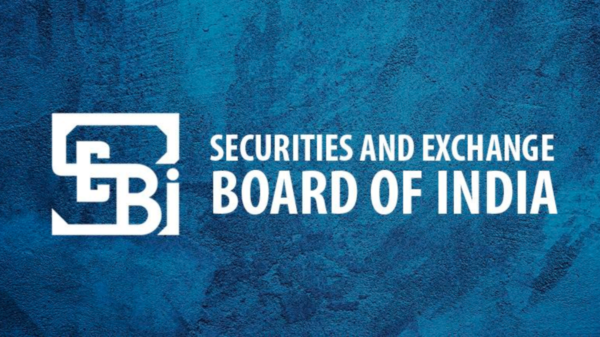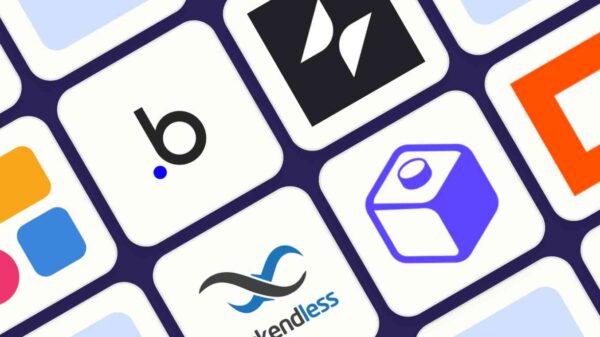Mental Accounting – Situation 1: As a movie buff, you decide to go watch the latest release in the theatre close to you. Each ticket costs Rs.500.
Case 1: You buy a ticket at the counter but end up losing it while you’re in the queue to buy snacks. By some stroke of bad luck, you can’t get a replacement for your ticket as you’ve lost the receipt as well. Will you buy another ticket?
Case 2: You go to the theatre but lose an Rs.500 note on the way. Do you still buy a ticket?
Note that in both cases you lose a piece of paper worth Rs.500.
Situation 2: You receive Rs.1,000 for different purposes.
Case 1: It’s your 13th birthday. Your grandmother gives you Rs.1,000. “Use it as you please,” she tells you.
Case 2: Your mom gives you Rs. 1,000 before you leave for your school picnic. “This is for emergencies,” she tells you. “Should you not need it, you can keep it and use it as you like.”
Money is money irrespective of how it is obtained or spent, isn’t it? Ideally, you should view the
Rs.500 or Rs.1,000 in the same manner, shouldn’t you? However, most of us would buy the movie ticket in the second case and not in the first one. Most of us would also not feel guilty about spending the birthday money on something fun and frivolous. We would, however, think twice before spending the emergency money on something that we didn’t really need. This dichotomy in spending behavior can be attributed to mental accounting.
Mental Accounting is a cognitive bias that states the tendency to treat one’s money differently based on factors such as its intended use or its source. Its premise lies in the fact that individuals classify items to allow themselves to segment decisions and evaluate potential trade-offs. This explains why we often perceive money as non-fungible despite knowing better.
People classify money into three types of mental accounts: a windfall account (for money acquired through luck or other chance gains), an income account (this is for the money we earn), and an illiquid wealth account (for the money we choose to save). The choices we make largely depend on which mental account we think is the most relevant.
Take, for example, games at the arcade. As a 7-year-old, I loved going to the arcade to play games and collect tickets to win prizes. Not too long ago, I found myself in the arcade again after over a decade. I tried my hand at the Color Match game, where I had to press the buzzer to complete the circle with the same color. Upon reaching a certain level, I was given two options: I could collect my mini prize and walk away or play on and risk losing it all. Go big or go home, I thought to myself and chose to continue playing. Soon after, I lost and had to walk away with nothing. I know for a fact that I wouldn’t have done this if I had won the mini prize through effort (through work or as a reward for an academic endeavor).
The Mental Accounting model supposes that people open a figurative ledger for each transaction/ category and classify each event associated with that transaction as a gain/loss. Individuals seek to have either a positive or zero balance by the end of each transaction. This partly occurs because of the sunk cost effect, which is a tendency of humans to continue investing in something even when it is clearly not working. Therefore, people mostly won’t buy a second movie ticket when they lose the first one (in Case 1 in Situation 1).
This might also help explain why we tend to hold on to bad investments; we rationalize that as we have already invested our money in certain stocks that aren’t doing well at the moment, it makes sense to hold on to them and sell them later when their market value improves! We unconsciously hope to achieve a balanced mental account.
Mental Accounting uses the principle of loss aversion, which refers to people’s tendency to prefer avoiding losses to acquiring equivalent gains. Now you know why randomly losing an Rs.100 note hurts a lot more than suddenly finding Rs.100 at the bottom of your bag.
Mental Accounting greatly affects our spending and consumption patterns. We, as consumers, prorate the number and size of future payments with expected consumption experiences. Thus, it makes sense to buy durable goods on credit and prepay for goods for one-time use. For example, we wouldn’t mind paying monthly installments for the purchase of a swanky new car but would prefer to pay upfront for a vacation abroad. Have you ever felt compelled to try the numerous fancy desserts at the end of an expensive buffet, even if you’re not really hungry anymore? Overconsumption is an effect of mental accounting; we rationalize that since we’ve already paid for the buffet, we might as well get our money’s worth.
You must have also noticed that you tend to spend more when you pay via credit card instead of cash. Research states that paying via plastic money delays pain and leads to increased spending. Paying via cash, on the other hand, requires us to reach into our wallets, peel off the notes one-by-one, count the exact amount and hand it over all at once. This causes immediate pain and so acts as a reminder to rein in our expenses. Paying digitally delays this pain to a future date, sometime around the end of the month. This can further be evaded by paying the minimum amount and racking up an overdraft.
Avoiding the Mental Accounting Bias
We’d all like to believe that as rational logical beings, we’re above glitzy marketing gimmicks. However, we’re all prone to certain biases. Here are a few things you can do to combat the mental accounting bias:
1. Educate yourself
Identify patterns in your behavior that cause you to fall prey to this bias. Coerce yourself to not differentiate between money based on its source. Remind yourself that money is fungible!
2. Create Real Accounts to Resemble Mental Accounts- Limit Temptation!
Financial planning expert, Monika Halan, recommends a three-account cash flow system to separate income, spending, and savings. She labels her accounts as the Income Account, the Spend-it Account, and the Invest-it Account. Every month, when her salary is credited to the Income Account, she immediately transfers the monthly expenditure amount to the Spend-it Account. She keeps a few thousand rupees as a cushion for extra spending in the Income Account and then transfers the rest of the money into the Invest-it Account.
Even if you’re not earning right now, you can still use this trick to manage your money. The monthly pocket money you get, along with any birthday money, Raksha Bandhan money, etc. that you are gifted can be classified as your income. Set aside the amount you need for recurring expenses (taxi fare, Spotify membership, etc.) and try to save a fixed percentage every month.
3. Use Mental Accounting to Set Goals your Advantage!
Create separate accounts to match your goals. For example, create a “Vacation Fund” for a certain place on your wish list. Set up an Emergency Fund that consists of an amount equivalent to at least six months of your salary to combat unforeseen events.
4. Deal with Windfalls Effectively
A surprise win/windfall/monetary gift could leave you feeling temporarily elated! Wait for a couple of days till the euphoria fades before spending the amount. Take stock of your overall balance. If you really want to spend some of the money, set aside a certain amount to splurge without any lingering guilt (you could call it your “Fun Fund”) and put away the rest.
5. Use the Sunk Cost Fallacy to Your Advantage!
We tend to segregate gains and integrate losses. Use this to let go of bad investments instead of holding on to them.
According to the sunk cost effect, you’re more likely to do something if you’ve already spent the money “assigned” to this activity. Hence, enroll in a monthly gym membership (even if it’s a little more expensive than the annual package). This way, you’ll feel the pinch of the money spent every month and you’ll be more likely to go work out!
Similarly, do not fall for offers like “Subscribe to our service for just Rs.X/day!” At first glance, this seems cheaper than a cup of coffee, but it tends to be quite expensive in the long run.
6. Spend Wisely
If you’re still learning the ropes of money management, cash and debit cards might be safer options than credit cards. If you must use credit cards (for points, rewards or to build a good credit history), set an upper bound for your expenses and do not accept offers from the bank to increase your overdraft limit.
Keep tabs on recurring expenses; we often forget the number of services to which we have subscribed. Use mental accounting to budget subscriptions.
7. Don’t Misuse Budget Buckets
Suppose a particular investment you made gave you better returns than expected in a shorter period. Don’t consider the use the extra amount earned as a bonus and spend it on something that you wouldn’t otherwise do.
8. Use Mental Accounting to Budget Time
Try this technique if you often find yourself overwhelmed with tasks. Set aside a specific time slot for a particular activity, be it family time or time for yourself, or even time to pursue a particular hobby. That way, you’re more likely to find the time to engage in this activity and schedule everything else around this.
Disclaimer: The insights expressed in this article are those of the author. This article was not written or edited by Empireweekly.com; it was published on July 31, 2022.




































